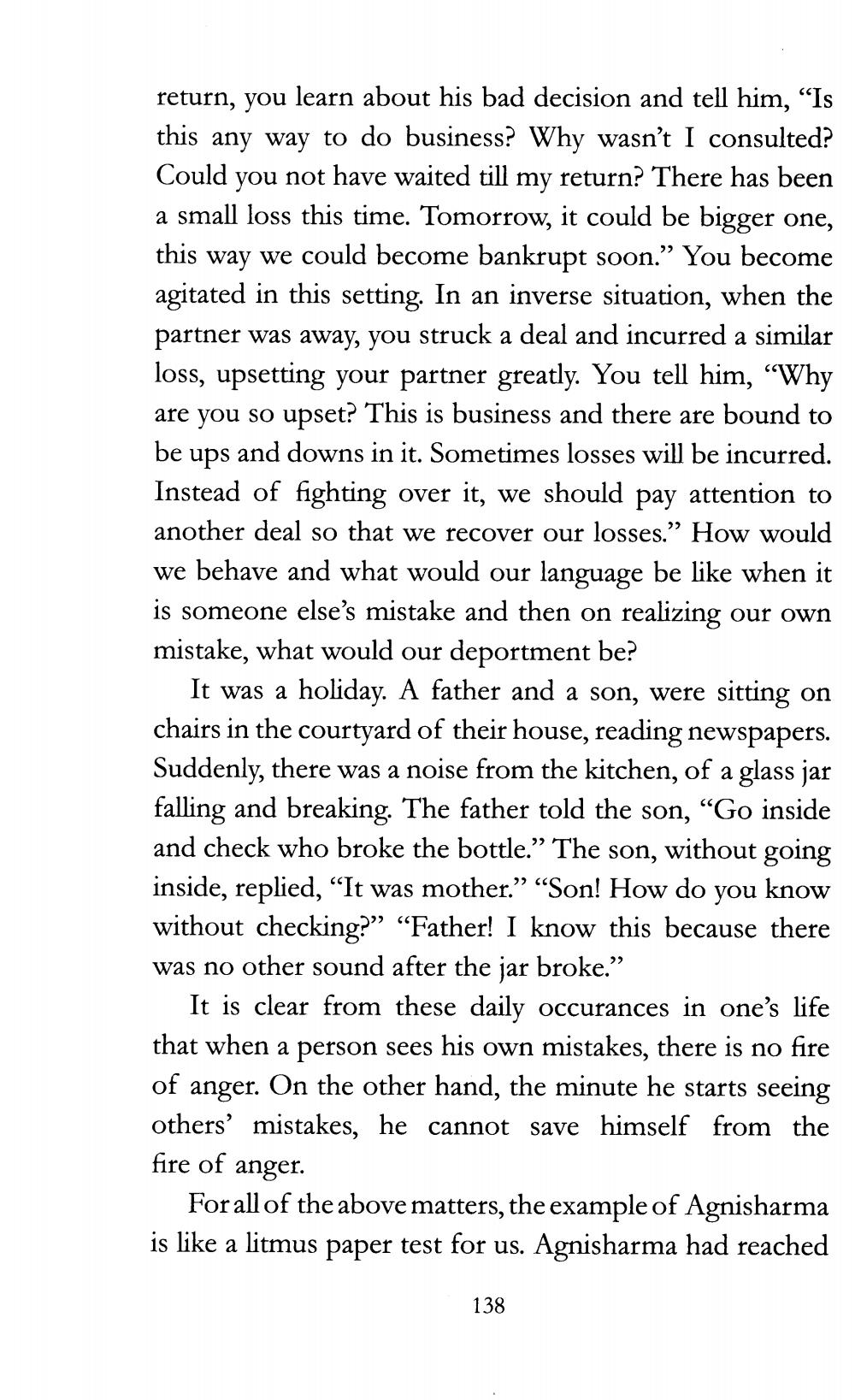________________
return, you learn about his bad decision and tell him, “Is this any way to do business? Why wasn't I consulted? Could you not have waited till my return? There has been a small loss this time. Tomorrow, it could be bigger one, this way we could become bankrupt soon.” You become agitated in this setting. In an inverse situation, when the partner was away, you struck a deal and incurred a similar loss, upsetting your partner greatly. You tell him, “Why are you so upset? This is business and there are bound to be ups and downs in it. Sometimes losses will be incurred. Instead of fighting over it, we should pay attention to another deal so that we recover our losses.” How would we behave and what would our language be like when it is someone else's mistake and then on realizing our own mistake, what would our deportment be?
It was a holiday. A father and a son, were sitting on chairs in the courtyard of their house, reading newspapers. Suddenly, there was a noise from the kitchen, of a glass jar falling and breaking. The father told the son, “Go inside and check who broke the bottle.” The son, without going inside, replied, “It was mother.” “Son! How do you know without checking?” “Father! I know this because there was no other sound after the jar broke.”
It is clear from these daily occurances in one's life that when a person sees his own mistakes, there is no fire of anger. On the other hand, the minute he starts seeing others' mistakes, he cannot save himself from the fire of anger.
For all of the above matters, the example of Agnisharma is like a litmus paper test for us. Agnisharma had reached
138




